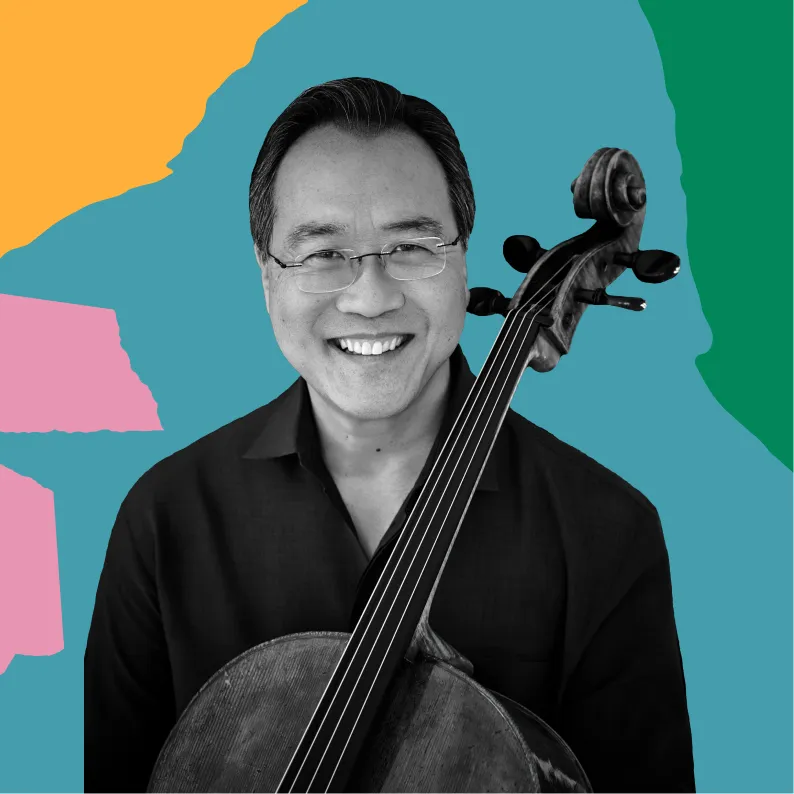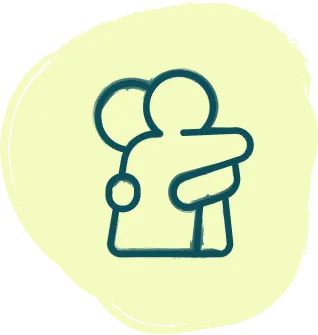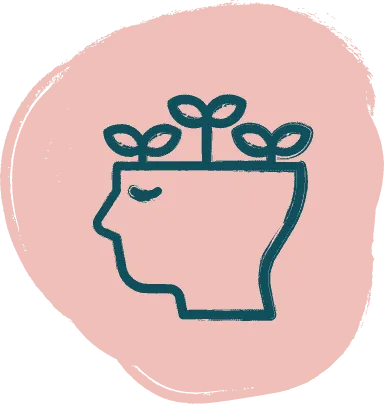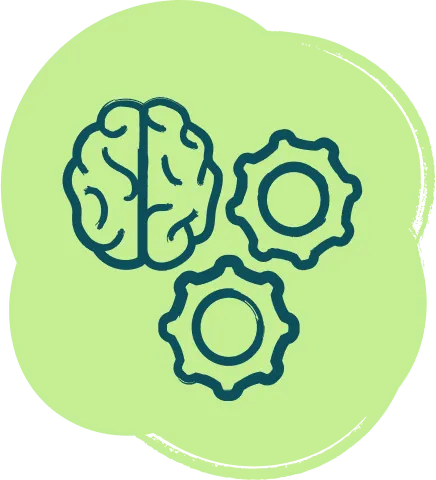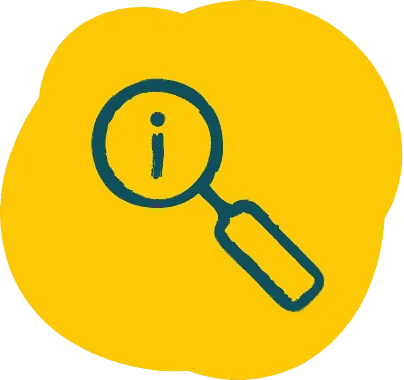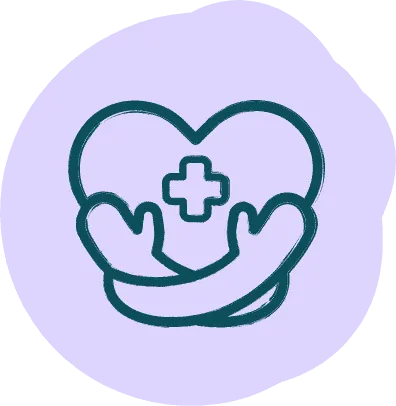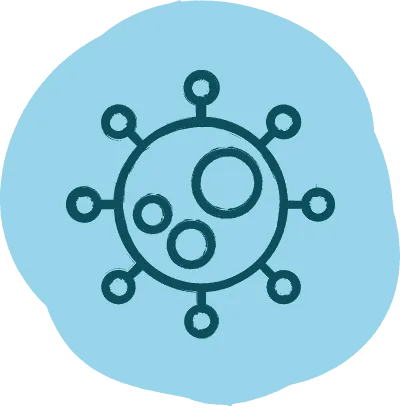- Dr. Vivek Murthy
Hello and welcome to House Calls. I'm Vivek Murthy and I have the honor of serving as U.S. Surgeon General. I'd like to introduce you to Yo-Yo Ma, world class cellist and humanitarian. Today we'll be talking about the power of music to heal our minds, our bodies and our communities. This is Part Two of a two-part conversation. The second part of my conversation with Yo-Yo Ma is about the power of music to heal and transform us. We pick back up talking about Yo-Yo Ma’s father's love of music, which he passed on to his children and carried with him when he moved his family to the United States. As we talk about how music can bring us together in so many ways, Yo-Yo shares his personal experience with burnout and his ideas about the “beginner's mind,” which centers on recommitting to every day as if it's a blank canvas. We also talk about our mutual admiration for Mister Rogers and what he's taught us about how to connect meaningfully. When our conversation turns to parenting, which Yo-Yo says is the hardest thing we'll ever do, I come away with great advice from a real pro, someone who prioritized exposing his children to different languages, cultures and ways of thinking to help them navigate the future. We wrap up talking about one of my favorite themes. Hope: Hope: where we find it and how we can create more. You know, you mentioned about loneliness as well, and I was struck by the story that you shared in your book, "Beginner Mind", about your father and about how during the war, World War II, he was living in Paris during the Nazi occupation, I believe. And you read about how he turned to music to actually help him feel less lonely at a time where there was great danger around, and he likely had to try to keep himself, you know, under the radar. But can you talk a little bit about that? Like how is it that you father came to use music to address loneliness? And how did it actually work for him?
- Yo-Yo Ma
Well, I think he became such a lifelong advocate for music from, you know, I think he had professors in China that were, I think, either educated in France or came from France, and hence his desire to go to France to go further his studies. So this was 1936. And so he was in his mid-20s, and he stayed there for 27 years. I think that became his calling because when we moved to the States, he started the children's orchestra. And to this day, I'm meeting, you know, people who were in the orchestra who are now doing things in life, and many of them are in music, professional musicians. So obviously he had an effect on, and my sister, who's a musician and a physician, and she and her husband run that children's orchestra. So…
- Dr. Vivek Murthy
Oh.
- Yo-Yo Ma
So I see then further another generation of people who will say, hey, I come from this thing. And so I think there's some generational continuity between what my father and my sister and my brother-in-law have done. But I think that obsession and dedication and mission for music came from an exposure and then, came from an exposure and seeking to kind of, to go to France and study music, and he had to promise his father to get a PhD because, you know, music… Right?
- Dr. Vivek Murthy
Understood.
- Yo-Yo Ma
Music doesn't do anything. But, ah, if you have a degree, maybe that's, you know, that's worth something. Sound familiar?
- Dr. Vivek Murthy
Very. Our immigrant stories have a lot in common.
- Yo-Yo Ma
Yeah. Exactly. And so, it was frustrating for him, you know, to be, having had all of these moving, I mean, immigration experiences, learning English at age 50 when we moved, when, and…
- Dr. Vivek Murthy
Can I just underscore that, learning English at age 50, what an incredibly hard thing to do.
- Yo-Yo Ma
Yeah.
- Dr. Vivek Murthy
I mean, it's hard to learn English as a second language at any age, but particularly when you're 50, I think underscores these incredible sacrifices and challenges that so many of our immigrant parents had to overcome and contend with when they came to this country. And that's why I actually, I don't think it's surprising like what you said in the very beginning, which is that they get really invested in what their kids do and sometimes even try to live through their children, because I know many of those sacrifices they made so that their kids could ultimately have more opportunities and be well off. So…
- Yo-Yo Ma
Yeah. Yeah. And we are an immigrant country, except for people who arrived, you know, now up to 23,000 years ago, new evidence. I think the common denominator is constant change. And I think the answer to that is human resilience. I mean, that's… And whatever it takes. And in the face of change, I have to say, on the way over, we were looking up the word stoic, and described as a person who continues to practice their virtues no matter what.
- Dr. Vivek Murthy
Hmm.
- Yo-Yo Ma
And so that translates into values. Right? So it's a, you know, ancient Greek philosophy, but the stoics where people who, I mean, the word implies that, oh, you know, you're holding back and, but that you're using courage and values to deal with whatever comes at you.
- Dr. Vivek Murthy
Yeah.
- Yo-Yo Ma
And in some ways, that's a form of resilience, because you always have your values.
- Dr. Vivek Murthy
Yeah.
- Yo-Yo Ma
And you're never existentially lost.
- Dr. Vivek Murthy
I love that, that's so beautiful. You know, I was thinking, you know, you're a father, now yourself, and you've raised…
- Yo-Yo Ma
I'm a grandfather.
- Dr. Vivek Murthy
You're a grandfather as well? Wow.
- Yo-Yo Ma
Three times over.
- Dr. Vivek Murthy
Three times over?
- Yo-Yo Ma
Your kids ages, yeah, well, six, five, and two.
- Dr. Vivek Murthy
Oh, congratulations.
- Yo-Yo Ma
I mean, so it's like, it's great. It's amazing.
- Dr. Vivek Murthy
You know, I always, as I get older, I see myself becoming my parents more, which is on the one hand-
- Yo-Yo Ma
Scary.
- Dr. Vivek Murthy
Scary. (both laughing)
- Yo-Yo Ma
Oh no!
- Dr. Vivek Murthy
But every now and then, if I see one of their good qualities, maybe peeking its head up in my own life, I think, huh. Maybe all's not lost.
- Yo-Yo Ma
So it's redemption.
- Dr. Vivek Murthy
Some redemption. But I find myself as a father, when I try to think about raising my kids, trying to create an upbringing from them that takes the best from my parents, but tries to learn perhaps from my own experience and maybe do things a bit differently. How do you find, like you described both of your parents as tiger parents, right? And they're very invested, obviously, in your music and in your life. How has your childhood, like, informed how you parent?
- Yo-Yo Ma
First of all, parenting is more difficult than anything that we might do.
- Dr. Vivek Murthy
Amen. (laughs)
- Yo-Yo Ma
This is, nothing compares to it. So role modeling can be both, you can take, I mean, I've tried to actually think of composite modeling.
- Dr. Vivek Murthy
Hmm.
- Yo-Yo Ma
Successful parenting for me would be not to pass on whatever toxins that I might have.
- Dr. Vivek Murthy
Yeah.
- Yo-Yo Ma
You know, received. Right? To another generation. So it's whether, it's habits. Unfortunately, you know, I'm absent minded, and if a child is absent minded, they look at me and say, well, I can't, but honestly. You know, I mean, so these things, it's a generational transfer, but hopefully not really, really bad habits. You know? And I think, so not passing on those things would be good so that they're free to actually explore and live their lives. I think what both my wife and I, we're bicultural people. And I kind of, we met sort of, I think this is also in hindsight, recognizing that there's something about, you know more than one way of thinking. You know? And I think in our world, and especially, at any time, but I think especially now, we wanted to give our children multiple perspectives. And that means exposure to different ways of thinking.
- Dr. Vivek Murthy
Yeah.
- Yo-Yo Ma
Different ways, you know, whether it's language or cultures or, you know, or literatures or whatever way. And it doesn't have to be either, you know, France, Germany or China or whatever. It's not that.
- Dr. Vivek Murthy
Yeah.
- Yo-Yo Ma
But really it's the idea that just as there are so many disciplines in our studies, that each have a slightly different way of getting to the truth, that also culturally, that you want to know that, you know, that there are certain values that are preferred in certain cultures, and to understand where those values actually create the culture. And I think that is a way for, hopefully for them to be able to find ways to navigate the future.
- Dr. Vivek Murthy
Yeah.
- Yo-Yo Ma
Right? I mean, it's interesting because I know that my grandchildren, if they live to be 80, will experience the year-
- Dr. Vivek Murthy
- Yeah. Gosh.
- Yo-Yo Ma
Right? And so it goes way past the singularity moment, way past all the UN, you know, and carbon emissions and, you know, all of that stuff. They're gonna live through that.
- Dr. Vivek Murthy
Yeah.
- Yo-Yo Ma
And so I think, in terms of parenting, I was talking to some high school students yesterday and I said, look, I'm trying to have them get a sense of what 1966 was like, which was when a piece was written, and said, you know, what you are worried about today and climate change, people were worried then about being obliterated by nuclear weapons. I mean, not that we don't worry about this, but that was kind of on everybody's mind. Right? So it's a different era. How do you give people an experience? I think the hardest thing to transfer is experience.
- Dr. Vivek Murthy
Hmm.
- Yo-Yo Ma
You could say, this is what happened.
- Dr. Vivek Murthy
Yeah.
- Yo-Yo Ma
But that's, "Yeah, Dad," you know? (both laughing) Right? It doesn't really, it's like how do you do that? But how do you create that wormhole so that someone can say, oh, I get it. I get that era. I get, you know… And so in terms of parenting, well, my parents probably thought, yeah, we want our children to meet a future that is, that they won't know. And I think in that sense, that would be the same goal. Right? And it's like, make them independent and give them all the tools and hopefully, you know, to avoid the traps that any one of us can fall into.
- Dr. Vivek Murthy
I love that. I love that description. I may call you up periodically when I run into trouble with my kids for some advice.
- Yo-Yo Ma
Yeah, I'll say-
- Dr. Vivek Murthy
They're five and seven…
- Yo-Yo Ma
Stoic… (laughs) Good luck with that. (both laughing) Have a scone. And call me in the morning. No, you know what, we need each other. You're right.
- Dr. Vivek Murthy
Yeah.
- Yo-Yo Ma
It is important to be able to… Guys tend not to do that.
- Dr. Vivek Murthy
Yes. That's so true.
- Yo-Yo Ma
Guys just don't, you know, we don't go to the doctor, we know the way, we don't ask for directions, you know? We just, I don't know, but maybe you're special, but, you know, but it's like, but guys tend not to pick up the phone.
- Dr. Vivek Murthy
You know, you're so true. And I'm sure there's some guys who do, but it's, you know, generalizing, it is the case. I think that men do, I think, need to be there for each other more and to talk more about some of their struggles, help each other through it. There's this a forum that I'm a part of, which is, you know, one which has a lot of doctors in, and they talk about, and often they like, are sharing clinical experiences, getting advice from each other, but sometimes they talk about personal experiences. And there was this one person who posted, who was a dad who said, you know, I find that I came back to work after having a child, and like, none of the guys like seem to like ask about a baby or ask about my life. It was just like, back to business as normal. He's like, but my wife, everyone's asking her about how things are going. They're like, she's part of a mom's group, they're supporting each other. And he's like, why is there such a discrepancy here?
- Yo-Yo Ma
Yeah.
- Dr. Vivek Murthy
He's like, how come guys aren't engaging more with each other's lives and helping and supporting one another more. So I know there's more of that that's starting now, but I think it's absolutely vital because even though I know that there are differences historically in what we've taught young boys, like being a man is really all about…
- Yo-Yo Ma
Right.
- Dr. Vivek Murthy
I think that we can't teach young boys that being a man I think that we can't teach young boys that being a man is about not showing any emotion. That it's about not needing, like, anyone else. You know, like, 'cause part of being human is needing other people. And it's about interdependence. That's how we grow stronger and how we go farther. from the series “Songs of Comfort” Prelude, Suite No. 1 for Solo Cello, J.S. Bach
- Dr. Vivek Murthy
I just want to ask you for a moment, I want to go back to something I asked you about earlier, which is values. You know, one person I associate with the kind of values that I would like to see the world built around is Mister Rogers.
- Yo-Yo Ma
Oh my gosh.
- Dr. Vivek Murthy
Who, I know that you, you know Mister Rogers well, he's somebody I, you know, have adored from afar. I never had the privilege of knowing him when he was alive. But I find myself thinking about him a lot these days because I feel like the values of kindness and generosity and understanding that he so beautifully spoke to, I feel like they're more needed now than ever before. But I'm curious like why Mister Rogers was important to you and what lessons he taught you?
- Yo-Yo Ma
I'll give you two stories. One is, so, you know, Mister Rogers was a musician. He's a wonderful jazz pianist. He married a pianist. And so music was very important to him. And he wrote all the songs.
- Dr. Vivek Murthy
I didn't know that.
- Yo-Yo Ma
Yeah.
- Dr. Vivek Murthy
Huh.
- Yo-Yo Ma
And so somehow appearing on his show, I was quite young, and he, I think Nicholas was two, is my son. And so he loved Mister Rogers. So when I was asked, you know, of course, of course I wanna go on Mister Rogers. You know, it's his show.
- Dr. Vivek Murthy
I still can't believe you were in Mister Rogers.
- Yo-Yo Ma
Yeah.
- Dr. Vivek Murthy
That blows my mind. Oh my gosh.
- Yo-Yo Ma
So I sat, you know, he sat right next to me and he put his face two inches away from my face.
- Dr. Vivek Murthy
Hmm.
- Yo-Yo Ma
Now, guys, you know that there's social space, right? You go into someone's face, it's either a kind of incredible aggression, or incredible intimacy. And this is a guy I don't know, and he's putting his face two inches from my face. Do you know how scared I got? You know, he says, "It's so nice to see you, Yo-Yo," you know?
- Dr. Vivek Murthy
Huh.
- Yo-Yo Ma
And I thought, what is going on? I'm so flummoxed.
- Dr. Vivek Murthy
Huh.
- Yo-Yo Ma
Until I realized he was able to take away all the socialization that we go through, shake hands, you do this, slap people on the back and, to what kids do, you know, the first thing kids do is like, they hang their hands on your face or they pull your glasses.
- Dr. Vivek Murthy
Yeah.
- Yo-Yo Ma
He was, he was actually in the same space as that of a child.
- Dr. Vivek Murthy
Oh my gosh.
- Yo-Yo Ma
Which was like, oh my gosh, he was doing that. You know? And I was freaked out because I thought, you know, that's so unusual. Right? But then I realized that's so amazing that he did that. And so many years later, my son became a filmmaker, did the documentary, "Will You Be My Friend?" And so he experienced Mister Rogers, and he appeared on "Mister Rogers" a couple times in a father-son segment that he was doing. So he knew, you know, Mister Rogers and his widow Joanne. But he was able to report so much more on what Mister Rogers, who he was, and, you know, the famous testimony in front of the senator who is kind of not happy about his asking for funding, and then he just threw all those papers away and said, you know, "I'm just gonna tell you, you know, have you ever been angry?" You know, been so, you know, he just went on an emotional way of acting that totally kind of at the end of which the senator says, I don't know what you're doing, but you've got your funding.
- Dr. Vivek Murthy
Yes. What a powerful moment.
- Yo-Yo Ma
It was amazing. Right? Here's Mister Rogers doing this thing. And, during the crisis, after 9/11, he was asked to come out of retirement and they said, you know, what do you do? What do you tell children about what happened? And his answer was, well, my mother used to tell me that in a crisis, always look for the helpers.
- Dr. Vivek Murthy
So beautiful.
- Yo-Yo Ma
Right? You know, he came through.
- Dr. Vivek Murthy
Hmm.
- Yo-Yo Ma
He came through, and then he used two Hebrew words, tikkun olam, heal the world.
- Dr. Vivek Murthy
So beautiful.
- Yo-Yo Ma
That's… So, he lives still, you know, in the shows and it's… Yeah. A unique, amazing individual.
- Dr. Vivek Murthy
He absolutely is. And you're right, he continues to inspire.
- Yo-Yo Ma
I'm so glad we share Mister Rogers. I mean, that's really…
- Dr. Vivek Murthy
Oh, yeah.
- Yo-Yo Ma
That's great.
- Dr. Vivek Murthy
I think he's extraordinary. And you also, speaking of healing the world, when COVID started and we went through just the extraordinarily painful journey that we did, I was so touched that you used music at that time to help people find some relief and some joy during what was a very harrowing period of time. Can you speak a little to that, to how you came up with that idea and what the response was to it?
- Yo-Yo Ma
Well, sure. I mean, I think… We have a little office and, you know, and come March of 2020, we said, okay, well, we gotta close up shop. You know, what do we do? And Jonathan Bays, who heads our team, says, you know, what about doing songs of comfort and hope? You know, and I had my cello there, and right there on an iPhone, you know, we just did a couple of those things that says, okay, let's, and then let's keep doing it. And then sending specific messages to various people or Zooming into hospitals or, you know, patients, and in different ways, in different venues, in different countries even. And just as personal messages. Again, fight against loneliness. You're not alone. You know what we talked about earlier about the iPad with someone who's, you know, the touch of the skin, vibrations of the air… And I think, one, I wanna be useful, you know, because we're so helpless. Right? And thank goodness for medicine, and the accelerated rate that things were able to be done. And of course, all the controversies that people have to go through and believers, non-believers, and this, that, you know, it's all part of humanity. But I'm reminded of something that Stalin said.
- Dr. Vivek Murthy
Hmm.
- Yo-Yo Ma
He said, one death is a tragedy. A million deaths is a statistic. And we lost easily over a million people. It's funny, we had the flags on the, you know, Washington Mall, you know? But we don't hear, we lost over a million people. And I think, so I'm playing a piece here that I think the composer who was writing about the people who died under Stalin, that he was able to reverse that, he turned the millions of people who died, not as a statistic, but he brought them forward so that they can stay in our hearts.
- Dr. Vivek Murthy
Hmm. from the series “Songs of Comfort” Sarabande from Cello Suite No. 2 in D Minor, J.S. Bach
- Dr. Vivek Murthy
As our time comes to a close, a couple last things I'd love to get your thought thoughts on. One is you've written about the beginner's mindset and how important that is for us to cultivate. Can you say a little bit about what the beginner's mindset is? - Well, for cellist, it means that it doesn't matter how many years you've lived, how many concerts you've played, and what you know. It's like if you're about to play a concert, you start with a beginner's mindset. You need to practice, you need to play scales, you need to go through training… You know, it's like you need to stretch, you need to get, you know, before anything happens, you have to actually start with a blank canvas.
- Dr. Vivek Murthy
Hmm.
- Yo-Yo Ma
What am I doing? So every day you almost have to remake your philosophy of life.
- Dr. Vivek Murthy
Hmm.
- Yo-Yo Ma
You know? Why am I here? Because I'm always questioning, am I useful? Am I doing any good? You know, I better try to do some good, otherwise I'm useless, you know, because I live in a country where, you know, culture is kind of not, it's just like very low on the hierarchy of things. So, whereas I think that culture is at the basis, arts and sciences is what, you know, you're thinking ahead or beyond and whatever, and then, you know, you hit the road, you know, then you have the middle, which is, okay, well, what are we gonna do? What's on the schedule? What are our goals? What are our quarterly reports? What are all that? But beyond that, it's like, what's the mission, what's the purpose and what's the meaning? And we're trying to kind of get to that. And so beginner's mind is about sort of recommitting every day to saying, okay, how is it gonna be useful? How can I actually start from a blank canvas, I mean, nothing to these high school kids that we meet, so how am we gonna make that, you know, hour important to them? Because if it's not important to them, my showing up does absolutely no good.
- Dr. Vivek Murthy
That is such a beautiful way to approach it. And I think has such broad applicability to fields outside of music, right? To everyone. To be able to, as you describe it, wake up and ask yourself, what is my purpose? How can I serve? Who do I wanna be in this moment? Whether you're a surgeon or a musician, or a business person, or a teacher, that feels like a really important question to ask. One of the things that really struck me, and I this struck me when I saw the beautiful music that you were sharing with the world in the beginning of COVID, is I remember thinking to myself, Yo-Yo has so much energy, so many ideas. It feels like he's constantly creating things. And at one point I wondered, like, does Yo-Yo Ma ever burn out? Ever feel tired, you know, with everything that's going on? And if so, like, how do you deal with that?
- Yo-Yo Ma
Well, burnout is a wonderful question. I got burnt out twice in my life.
- Dr. Vivek Murthy
Hmm.
- Yo-Yo Ma
Once when Nicholas was a year old, because after becoming a father, I thought, you know, I was a young buck, you know, I could do lots of pushups. I could create energy, right? I could sleep, you know, four hours. I have more energy, I'm tired, I'll do more pushups. I can be a good husband, I can be a good father, I'll be a good cellist, I'm gonna travel and this, you know… And after a year, I burned out.
- Dr. Vivek Murthy
Oh, wow.
- Yo-Yo Ma
I just thought, like, you know, like for weeks I was angry at everything. It was just like, everything was just this. Like, everything was just bad. And it was such a horrible feeling that I thought, you know, I never wanna experience this again. And then I think after… I think after my kids went away to school, that was another moment. Because again, I thought, you know, my biological function was over.
- Dr. Vivek Murthy
Hmm.
- Yo-Yo Ma
It was, I was totally bereft, you know, I thought like someone had gotten inside and pulled an organ out of me, just ripped it out of me. And they were gone. It was just like, you know, and so, what did I do? I worked harder, you know, it's like, okay, I'm gonna… And then I'm burnt out again. So I think… I think I always go back to the human for inspiration. And it's like, I find that every place I go, you know, the Arthur Miller, you know, what is it?
- Dr. Vivek Murthy
Willy Loman.
- Yo-Yo Ma
The "Death of a Salesman". Willy Loman.
- Dr. Vivek Murthy
Yeah.
- Yo-Yo Ma
Thank you. See, good education. That if you don't know where you are and make it meaningful for where you are, you will get burned out. So one way to avoid burnout is to spend the extra time to know where you are, talk to the people where you are, find out why they exist, what is going on in their lives. So there's no place that's boring to me, you know, in the world. There's no favorite place, it's like, you are boring if you can't find something interesting about what's going on. And it's like, but you have to kind of figure that out. And then, you then have an emotional memory you can draw from. That's part of your bank account.
- Dr. Vivek Murthy
Hmm. Oh, that's beautiful.
- Yo-Yo Ma
You know, so it's, you become burned out when your emotional bank account is bankrupt.
- Dr. Vivek Murthy
Yeah. I think that's such a great image. Like when I finished my first tenure as Surgeon General, I was really burned out.
- Yo-Yo Ma
Yeah.
- Dr. Vivek Murthy
And my wife was burned out too.
- Yo-Yo Ma
Wow.
- Dr. Vivek Murthy
And we used to come home and ask each other each day. 'Cause we realized we were burned out, but we didn't actually have a sense of how burned out each of us was. So we had this concept of our emotional tank. Right? And we would ask ourselves, how full is your tank? And sometimes it would surprise me. Sometimes Alice would say, you know, "I think I'm only at 10% today." I was like, oh, wow. I hadn't picked up on the signals and realized it was that bad. Okay, I need to lean in and do more. Sometimes I would tell her, "Hey, I'm at 10%." And, you know, and she would help support me too. But I think you're right. The question is, how do we replenish that emotional tank? And one of the reasons I find music so powerful is I think it can replenish our tank in powerful ways, not just because we enjoy the notes being played or sang, but because it evokes something deeper within us. And especially when we experience music, I think, with other people, that communal experience can be extraordinarily powerful. And you have created that for people around the world, I think about you as a healer, you know, and not only as a musician, not only as a cellist, but as your healer who heals through your music, through the community that you build. And through the messages of hope that you have had to help bring throughout the world, not just during the pandemic, but well after that as well.
- Yo-Yo Ma
Well, I think we're all about trying to create hope.
- Dr. Vivek Murthy
Hmm.
- Yo-Yo Ma
I think the bank account for hope is, in different places of the world, in different parts of the country, can be quite low. But through traveling, which you're doing, I bet you're also finding some places are quite hopeful.
- Dr. Vivek Murthy
They are. Yeah.
- Yo-Yo Ma
And it's like, how do you identify and give legitimate hope to people? And I think that's the thing we need to think about. I think, you know, for some places where, you know, there's 40% unemployment, especially for boys, that is no hope.
- Dr. Vivek Murthy
Yeah.
- Yo-Yo Ma
Right? You know, so that some are very clear statistics that can say, okay, well, this needs hope. But for other places, I think, it's loss of meaning, you know? Or cynicism. Cynicism is not, is a negative view of reality. Right? And I think that's dangerous because cynicism actually kind of prevents hope from happening. Because if I'm hopeful and you're cynical, you'll just pooh-pooh whatever I say.
- Dr. Vivek Murthy
Exactly. And that's the part I think that is so important that you refer to in the beginning around gratitude. And why I think gratitude is so powerful. Because focusing, I think, on gratitude and cultivating hope is not a willful ignorance of the hardship that people are facing in their lives. And people are facing extraordinary challenges, health challenges, economic challenges in some cases, and we know that food insecurity is still a big challenge in our country. So many kids are going hungry. There are a lot of challenges. But to me, to be able to address those challenges means that we need hope. And we get hope from each other, we get hope from music, we get hope from memories as well, and particularly from things in our life that we can be grateful for. And so, I have found that these gratitude practices are a powerful way to replenish my own emotional tank. And I was curious if you could just do something with me, if we can maybe do this together. from the series “Songs of Comfort” Sarabande from Suite for Cello Solo No. 4, J.S. Bach
- Dr. Vivek Murthy
If we each had to name three things that we were grateful for. I'm curious. What would your three be?
- Yo-Yo Ma
Well, I would go, I'm grateful for my wife, I'm grateful for my children, I'm grateful for my grandchildren. That's an immediate, you know, answer. And that's the answer I gave, you know, when we were in Alaska and we were asked to say, you know, who would you include? At that time, my mother-in-law was dying.
- Dr. Vivek Murthy
Hmm.
- Yo-Yo Ma
And I think I see a through line between my mother-in-law, my wife, my daughter, and my granddaughter.
- Dr. Vivek Murthy
Oh.
- Yo-Yo Ma
Because they're strong women. And I said, you know, I would want them to be in the circle, you know, with me. And what would you say?
- Dr. Vivek Murthy
I would say, I'd say first my parents, who allowed me to think outside conventional boundaries and were just unyielding in their support and love. I'd say next, my sister and my wife, who in very different but beautiful ways have reminded me of what was really important in life. And then third would be my children. I'd say all in equal importance. But my kids are the reason I do what I do. They're the ones who remind me that what I'm doing, what all of us need to do is really about creating a better world for them. And they also just bring a lot of joy into my life, though.
- Yo-Yo Ma
Yeah.
- Dr. Vivek Murthy
And I find that, again, sometimes being in our heads too much, and as I certainly am, I can lose track of the moment of the joys that happen in the moment. Like, I see my kids sometimes staring at a funny shape on the wall and laughing between themselves. They're finding joy in something that seems like, that I probably would've just looked over, you know, and just not noticed at all. So my kids are beautiful in that respect. And when I actually travel, I carry their socks with me from when they were an infant, just to, in fact, I have them here, I'll show them to you.
- Yo-Yo Ma
Oh, wow.
- Dr. Vivek Murthy
I always keep them with me because they-
- Yo-Yo Ma
Oh!
- Dr. Vivek Murthy
They remind me of what…
- Yo-Yo Ma
Of course, the size and the whole thing. Yeah, yeah.
- Dr. Vivek Murthy
So, yeah.
- Yo-Yo Ma
Amazing. Because that's what music can do for people. And carrying an object, right? Can conjure up a whole time, slew of time, you know, it's like a distance… Yes.
- Yo-Yo Ma
Of time and it just brings it back.
- Dr. Vivek Murthy
Yeah.
- Yo-Yo Ma
It's like, and we need those touch points, right?
- Dr. Vivek Murthy
You're exactly right. 'Cause these sort of talismans, like are powerful, right? Like, I just hold onto these socks and it brings a whole set of emotions into my heart and clarity in my head about what I wanna do. But when I was in medical school, we had a lot of burnout taking place. And I remember we had a class that we put together called The Healer's Art, inspired and founded by Dr. Rachel Remen. It was at UCSF at the time. And it was a time for us to be able to come together as students and talk about the core values that brought us together to reflect honestly on some of the pain that we were witnessing, and to talk about how to come through it together. And at the end of the course, they gave us these small hearts, red fuzzy hearts, that we would keep in our pockets when we were in the hospital. And whenever we were in one of those moments where we felt the pain and the suffering were more than we could perhaps bear, whenever we were starting to feel burned out or that we were alone in our struggles, we would reach our hand into our pocket and grasp that fuzzy heart and remember that there were others out there who had those hearts too, who believed in the same values that we did, who had the same hopes that they could contribute to healing that brought us all to the profession. And then we would move through our day, again, knowing that there were others out there who had our back. So these talismans are really, really vital.
- Yo-Yo Ma
Incredible. Touch. Right?
- Dr. Vivek Murthy
Touch. Yeah.
- Yo-Yo Ma
And that's beautiful. That's very, very beautiful.
- Dr. Vivek Murthy
Oh, thanks.
- Yo-Yo Ma
Wow. Smell.
- Dr. Vivek Murthy
Smell. Huh.
- Yo-Yo Ma
Early smells that, you know, olfactory sense.
- Dr. Vivek Murthy
Yeah.
- Yo-Yo Ma
Limbic system. It's like it brings, it can cross time. Right? You know, your mother's some flavor, your grandmother would make something and, you know, instantly.
- Dr. Vivek Murthy
Absolutely.
- Yo-Yo Ma
It recalls.
- Dr. Vivek Murthy
Absolutely.
- Yo-Yo Ma
You recall… And, amazing.
- Dr. Vivek Murthy
As we wrap up, can I ask you a couple of rapid fire fun ones? What's your favorite book?
- Yo-Yo Ma
That's too hard. I'll tell you first, I'll tell you the last two books I read…
- Dr. Vivek Murthy
Yeah.
- Yo-Yo Ma
That I can tell you because it's something to do with what I'm doing right now. But Jeremy Eichler, who is a culture writer just wrote a book called "Time's Echo".
- Dr. Vivek Murthy
Hmm.
- Yo-Yo Ma
And what he did was that he took four composers that went through World War II and, Schoenberg, Shostakovich, Strauss and Britten. And what he did was that he gave the cultural context of their writing and what was going on. And I have friends who read that book and, you know, then it gave, their listening to music so much meaning, you know, it's like you put together the village, right, surrounding the work. And so I'm doing a talk with them next week. And so I'm reading that. And the other was, Tolstoy wrote "The Kreutzer Sonata", which is actually in a Beethoven sonata. And so there, there's the piece of music, there's the sort of the novella, I guess. But my favorite books that have really, really influenced me, I think when "Guns, Germs, and Steel" came out with Jared Diamond.
- Dr. Vivek Murthy
Yeah.
- Yo-Yo Ma
I thought, wow, what a great way of thinking about, you know, maybe a richer way of thinking about the flow of history. - That's beautiful. - Right? So over time, different books like that just kind of launch you into a different direction.
- Dr. Vivek Murthy
Yeah.
- Yo-Yo Ma
You know? And those, I treasure. So what about you?
- Dr. Vivek Murthy
Well, right now, I'm reading a book Well, right now, I'm reading a book by Ta-Nehisi Coates "Between the World and Me."
- Yo-Yo Ma
Yes.
- Dr. Vivek Murthy
Which is a letter, essentially written as a letter he wrote to his son. And it's a fascinating, thoughtful, heart wrenching, deeply reflective book about race, about growing up, like, in America and about fatherhood as well. So I'm really enjoying that. And I'll tell you, I'm also sort of in parallel reading "Harry Potter" with my son.
- Yo-Yo Ma
Great.
- Dr. Vivek Murthy
So, my son who's seven, he's on book four right now. And I've been like, actually sometimes picking up his book and rereading like little pieces of it here and there. But one of the reasons I actually think that's such a powerful series, the "Harry Potter" series is because while it's incredibly artistic and extraordinarily creative, you know, in the thought that went into the story, there are some core values in those story, which I find just deeply heartening, values around friendship and loyalty and sacrifice and courage. And I'm hoping that my son is picking up on some of those.
- Yo-Yo Ma
Of course he will.
- Dr. Vivek Murthy
But I'm getting a chance to reflect on those as I reread as well.
- Yo-Yo Ma
Especially when you're not lecturing at him, you know? (both laughing)
- Dr. Vivek Murthy
It's always better if he hears things.
- Yo-Yo Ma
Think about sacrifice, courage!
- Dr. Vivek Murthy
(laughs) No, that's exactly, that's exactly right. Last thing I just wanna ask you is, when you look out at the world, at everything that's happening, what gives you hope that we can, in fact, create a better future for our children?
- Yo-Yo Ma
Maybe this is totally aspirational, but I think if there were unity of purpose in all of us, and belief that something, even an impossible goal, is worth trying for. You know, I think there were moments in history where people, there was sort of a general social, you know, the energies in the air of saying something is happening, you know, the enlightenment may have been one of those moments for certain people, you know, but we need sort of a kind of enlightenment where, unity of purpose is like sort of enough commonality of philosophy that includes then, you know, the usage of, and nurturing of critical thinking with using the heart as a muscle and practicing, you know, compassion as a muscle because it expands if you use it. Right? But in terms of the societal level to have… And the people are starting to think about that, you know, Harari, you know, wrote this "Sapiens". Right? You know, so trying to think, okay, what about this species? You know, some people will say, well, it's technology, whatever, but, you know, Freeman Dyson, before he died, said something interesting. He said that cultural evolution is happening faster than biological evolution.
- Dr. Vivek Murthy
Mm. Yeah.
- Yo-Yo Ma
And geologists will say that we're in the Anthropocene. Right? And so that means that our future is more determined by what we do, more and more so. And so that gives us, again, the possibility of rethinking is, well, what is society for? What the enlightenment tried to do, right? What's a human's relationship with society, with government, and what is it that, you know, the nation building that went on for the next 150 years? Well, what do we want? You know, John Rawls would say, you know, let's start again, let's create civilization. How would, you know, they're games. He says, what is civilization? What do you want it to be? And can we agree or maybe can we agree to disagree, but then agree on certain things?
- Dr. Vivek Murthy
Yeah.
- Yo-Yo Ma
And, but for greater good, you know? And how could everybody benefit with that kind of thing without people claiming this is unfair. Right? You know? Just exactly what happens in the family.
- Dr. Vivek Murthy
Yeah.
- Yo-Yo Ma
It's no different, you know, how come so-and-so is able to do that? Because I didn't get to do that until I was five.
- Dr. Vivek Murthy
Yeah. No, I do think that the family is a, is in so many ways, a very interesting and important analogy to how we wanna build a community, where you can have people who are different, but who find ways to come together, who recognize that we have to have each other's backs.
- Yo-Yo Ma
Yeah. And who don't cast people aside just 'cause you disagree with them or have a difference of opinion. I so loved this time together. I feel like I'm leaving our conversation with this even deeper appreciation for you as a, not just as a musician, but as a human being, as a contributor to the world. And, you know, I just wanna thank you know, for being such a wonderful friend, for being a humanitarian who's helping the world heal. If I was writing a book about you, title is "Yo-Yo Ma," the subtitle would be "Hope Maker." Because I think that's what you've given me and so many people, and especially with what you did during the pandemic, what you've done through the Silk Road Project and through Our Common Nature and other projects where you have just used music to help us see more clearly what is in front of each of us, which is each other, often. And using music as that powerful vehicle for connection and reflection, I think is something you do better than anyone I know. So thank you from the bottom of my heart.
- Yo-Yo Ma
Thank you so much. Can I have that in writing? Because I'm… (both laughing)
- Dr. Vivek Murthy
Whatever you need, it's recorded for perpetuity, so…
- Yo-Yo Ma
No, no, no. It's so wonderful to talk with you because I feel the conversation is, it just can go on forever. It's just endless. So I really, really appreciate you. Thank you so much.
- Dr. Vivek Murthy
Thank you for joining this conversation with Yo-Yo Ma. I hope you’ll tune into our next episode of House Calls with Dr. Vivek Murthy. Wishing you all health and happiness. - I think, you know, from theory to practice, every single one of us negotiates, you know, even a two year old is having a theory about something. - Yeah. - And then there's a practice of something. And it's like we're experimenting constantly between theory and practice, but to bring the two closer together so that the people who do theory actually know practice, and the people who practice actually also are aware of theory. And so that we sort of, we have silos, we need them, but then we train ourselves to also get out of our silos at the same time. Right? - Yeah. - So what you are, you're a generalist and a specialist, right? I think we spent a good 150 years becoming specialists, because that's how you get jobs. But when you use all your critical thinking for the silo, you lose the ability to actually think the whole. - Yeah. - And I think that is a world emergency, because, you know, the anti-globalists say, well, what you're doing is that you're screwing us over and you're, you know, you're taking advantage of that. And it's not, so they've been put into a corner of saying you're all bad. And so the local is actually fine, but it's also not enough because you may have an industry one day in your town, and the next day it's gone. So that doesn't make people happy. And so we have to actually join the generalist/specialist sort of preferences together. Right? The specialists get the jobs, the generalists get ignored, you can't be a specialist, so therefore that person's a generalist. - Yeah. - You know, it's like in music, it's like those who can't play, teach. That's baloney. - Yeah. - Right? But if that's part of a thinking… - Yes. - That has to change. - No, and you're absolutely right. And there's great value, I think, especially in a very complex world, to being a generalist. - Yeah. - And to being able to see the different threads across and how they connect.
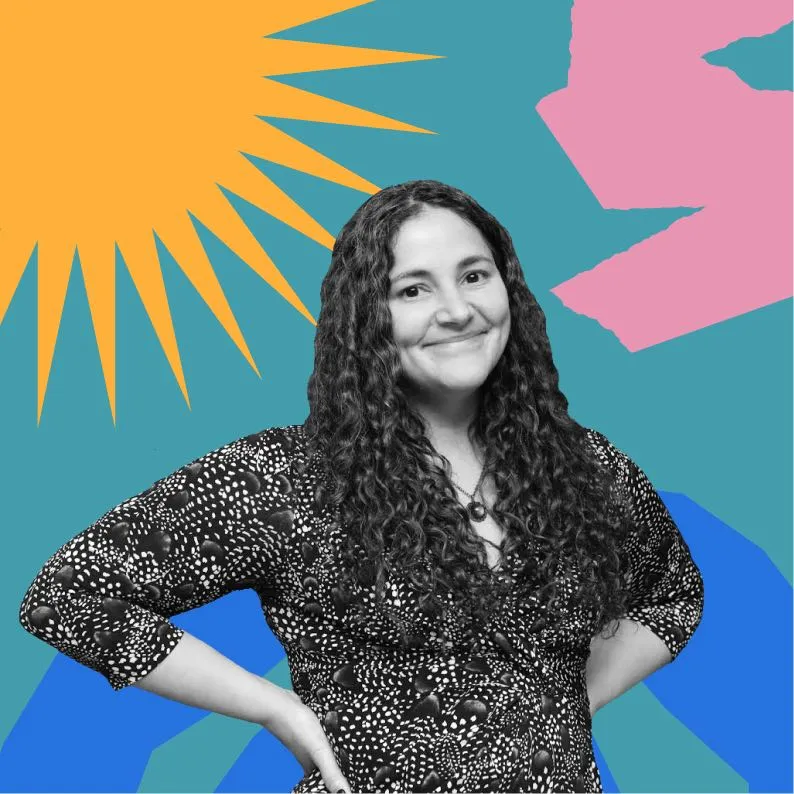
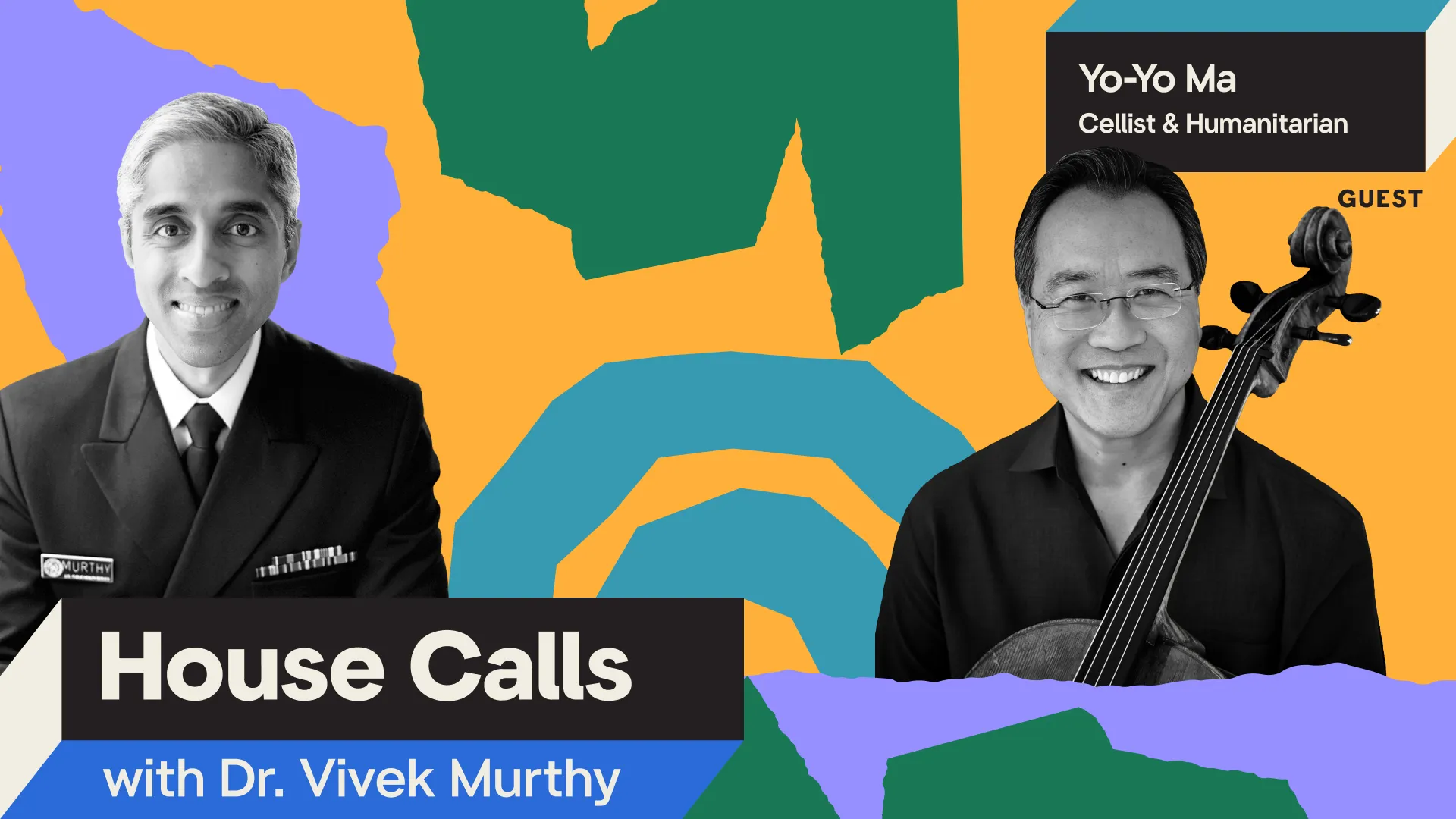
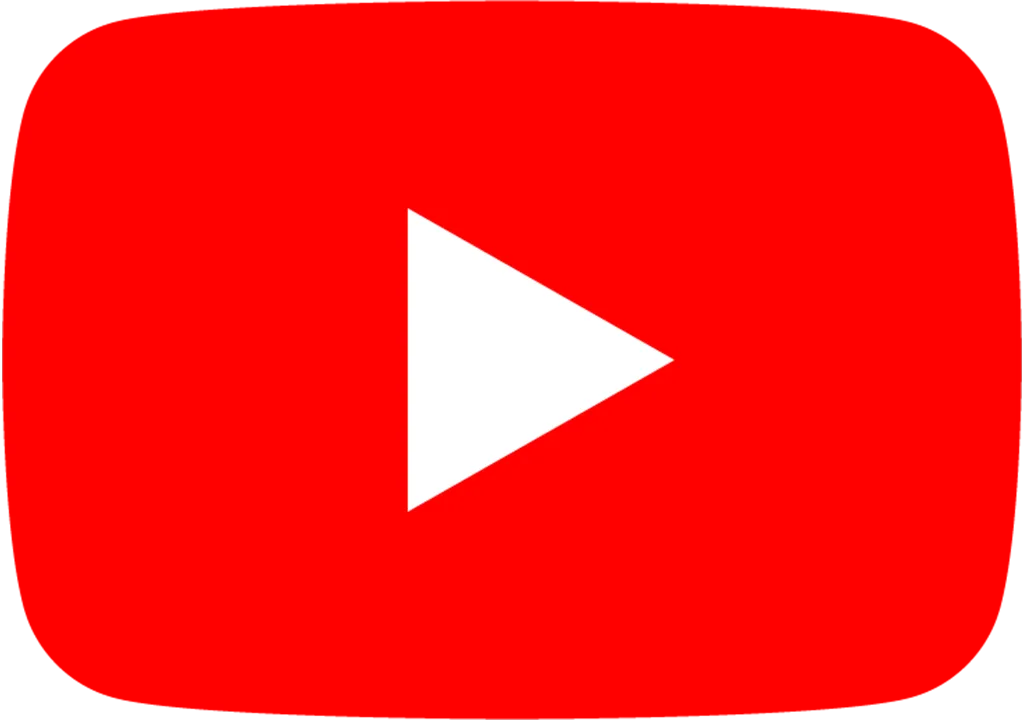 Youtube
Youtube
